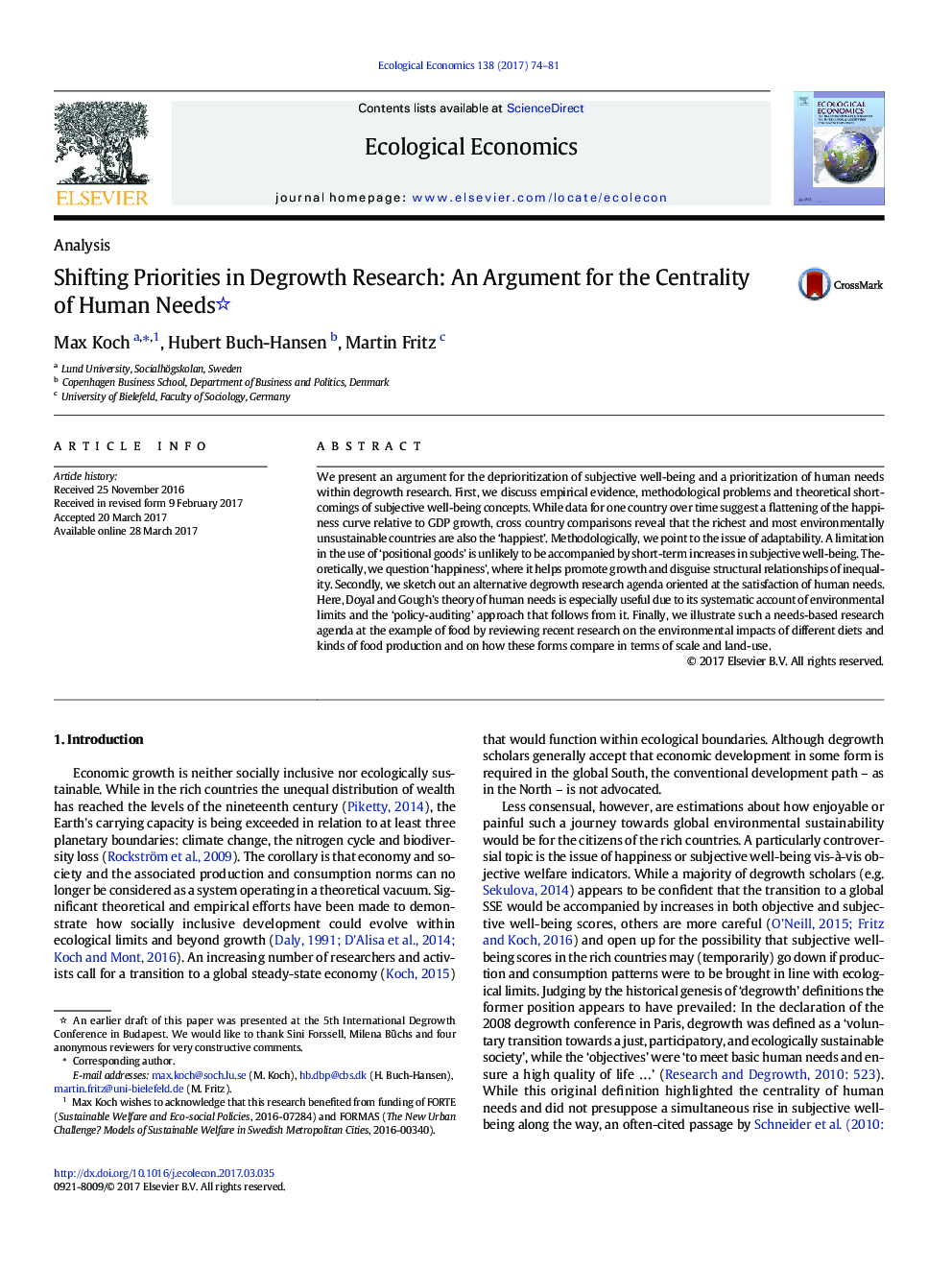| Article ID | Journal | Published Year | Pages | File Type |
|---|---|---|---|---|
| 5048746 | Ecological Economics | 2017 | 8 Pages |
We present an argument for the deprioritization of subjective well-being and a prioritization of human needs within degrowth research. First, we discuss empirical evidence, methodological problems and theoretical shortcomings of subjective well-being concepts. While data for one country over time suggest a flattening of the happiness curve relative to GDP growth, cross country comparisons reveal that the richest and most environmentally unsustainable countries are also the 'happiest'. Methodologically, we point to the issue of adaptability. A limitation in the use of 'positional goods' is unlikely to be accompanied by short-term increases in subjective well-being. Theoretically, we question 'happiness', where it helps promote growth and disguise structural relationships of inequality. Secondly, we sketch out an alternative degrowth research agenda oriented at the satisfaction of human needs. Here, Doyal and Gough's theory of human needs is especially useful due to its systematic account of environmental limits and the 'policy-auditing' approach that follows from it. Finally, we illustrate such a needs-based research agenda at the example of food by reviewing recent research on the environmental impacts of different diets and kinds of food production and on how these forms compare in terms of scale and land-use.
